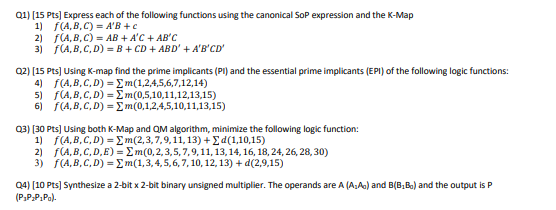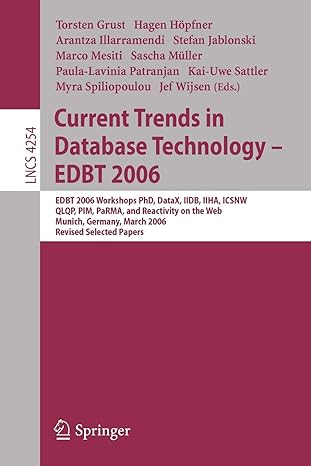Answered step by step
Verified Expert Solution
Question
1 Approved Answer
Q1) [15 Pts] Express each of the following functions using the canonical SoP expression and the K-Map 1) f(A,B,C)=AB+c 2) f(A,B,C)=AB+AC+ABC 3) f(A,B,C,D)=B+CD+ABD+ABCD Q2) [15

Step by Step Solution
There are 3 Steps involved in it
Step: 1

Get Instant Access to Expert-Tailored Solutions
See step-by-step solutions with expert insights and AI powered tools for academic success
Step: 2

Step: 3

Ace Your Homework with AI
Get the answers you need in no time with our AI-driven, step-by-step assistance
Get Started


